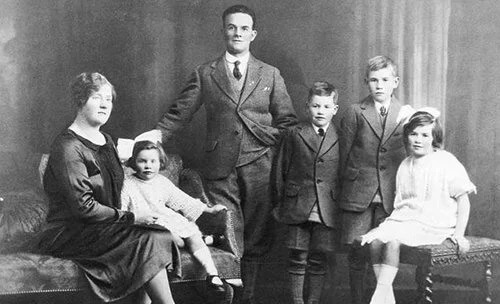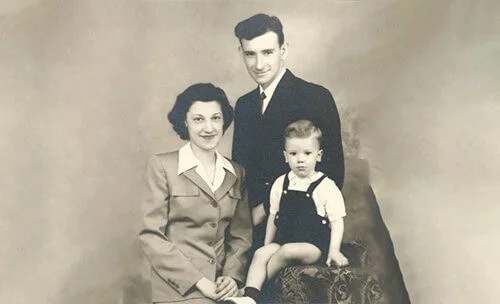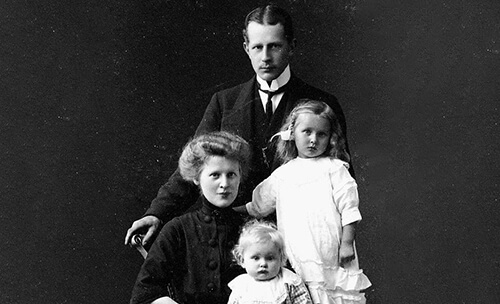Curiosity about family history often begins with a single question: Where do I come from? For some, the answer is hidden in old photographs and handed-down stories. For others, it lies buried in archives, passenger lists, and church records scattered across continents.
While online tools offer a starting point, they rarely reveal the full picture. That’s why many people choose to hire a professional genealogist who specializes in uncovering deep, accurate, and meaningful family connections.
This guide offers a clear path for selecting the right genealogist. It outlines what to expect, what to ask, and how to choose a service that brings experience, trust, and personal attention to your unique family story.

Why Hire a Professional Genealogist?
Genealogy isn’t just about searching online databases. It involves deep research, multilingual records, cultural insight, and persistence. When you hire a professional genealogist, you gain:
- Accuracy: They know how to avoid common mistakes and confirm information through multiple sources.
- Access: Professionals often have subscriptions, licenses, and local contacts that private individuals don’t have.
- Time-saving: What might take you months or years, they can achieve in a matter of weeks.
When you’re dealing with inherited property, dual citizenship, tribal affiliation, or even simply documenting your family for future generations, having the proper support is essential. This is where expert genealogy research services make all the difference.
Exploring What Genealogists Actually Do
Professional genealogists are historical investigators. They gather information from census records, immigration papers, church registries, land deeds, newspapers, and other archival sources. However, their work extends beyond simply finding names and dates.
They uncover where your ancestors lived, what they did, where they moved, and what historical events shaped their lives. With them, you don’t just gather data, you receive stories, context, and often answers to long-standing family questions.
They also assist in legal matters such as estate claims, lineage society applications, or dual citizenship verifications, offering both emotional and practical value.
Types of Genealogy Research Services Offered
A skilled family history researcher will tailor their approach based on your goals. Common services include:
- Family Tree Research: Building multi-generational trees with supporting documentation.
- DNA Interpretation: Explaining your genetic results and integrating them with existing family history.
- Historical Context Reporting: Adding depth and understanding to the lives of your ancestors.
- Narrative Compilation: Creating readable and engaging family stories for sharing or publishing.
These services cater to a wide range of interests, from casual curiosity to complex genealogical challenges.

What to Look for in a Family History Researcher
- Credentials: Certifications from reputable organizations, such as the Board for Certification of Genealogists (BCG) or ICAPGen, and Sapling demonstrate formal expertise.
- Experience: Years of hands-on research, especially in the geographic or ethnic areas relevant to your family.
- Ethics: Respect for privacy, accuracy, and transparency should be at the core of their practice.
- Communication: Clear, consistent communication ensures your project remains on track.
Reading bios and viewing samples can help determine whether a professional aligns with your goals.
Questions to Ask Before You Hire a Professional Genealogist
Interviewing potential genealogists is essential. Ask the right questions to ensure a good match:
- What is your area of specialization?
- Can you share examples of past projects like mine?
- How do you handle difficult or missing records?
- What timeline can I expect for results?
- How often will we communicate?
- What are your fees, and how is billing handled?
These questions help you feel confident and informed about the service you will receive.
Checking Credentials and Client Testimonials
Take time to verify qualifications. Certifications like those from BCG or ICAPGen are strong indicators of skill. Ask for:
- References: Testimonials from past clients can offer valuable insights into professionalism and results.
- Sample Work: Even a personal project or published article can show research style and quality
- Online Reviews: Check platforms like Google or the Association of Professional Genealogists (APG) directory.
These steps protect your investment and help set realistic expectations.
The Sapling Family Difference
Sapling is not just another genealogy service. It is a trusted partner in uncovering your story. Led by Dr. Cisco Bradley, a genealogist with over 35 years of professional experience, Sapling offers:
- Deep expertise in American and international family history
- Specialization in Great Migration research and ethnic diversity
- A concierge, client-focused approach with personalized reports
- Strict privacy protocols and guaranteed discretion
Every client is treated with care, curiosity, and respect. Your history becomes their mission.

What to Expect From Sapling’s Genealogy Research Services
Working with Sapling means receiving high-quality, professional results. Your personalized report may include:
- Pedigree Charts
- Narrative Summaries
- Photographs
- Biographical Sketches
- Research Notes
These materials aren’t just documents. They’re part of your legacy and can be passed down for generations.
How Sapling Simplifies the Process
Getting started is easy. Here’s how Sapling Family makes your experience smooth and rewarding:
- Submit a Get Started Form: Share basic details about your family history goals.
- Free Trial Research: Receive initial insights and ask questions.
- Choose a Package: Select the plan that fits your goals and budget.
- Research Phase Begins: The team dives deep, keeping you updated along the way.
- Receive Results: Get your full digital package. You can also schedule a one-on-one review session.
The process is designed to be clear, flexible, and client-centered.

Managing Your Genealogy Project Successfully
To get the most out of your genealogy investment:
- Set Goals: Are you proving citizenship? Exploring migration? Clarify your objectives.
- Define Budget and Timeline: Be upfront about your expectations to guide the scope.
- Stay Engaged: Regular communication helps refine the direction and improve results.
Good planning leads to excellent outcomes.
Effective Collaboration with Your Researcher
Collaboration doesn’t end when the research starts. Stay connected by:
- Scheduling regular updates
- Sharing feedback or new findings
- Using shared folders or tools to track progress
When both sides are engaged, discoveries become more meaningful.
Defining Your Family History Goals
Before hiring anyone, know what you want. Your goals guide everything. Some examples:
- Trace a surname through immigration records.
- Uncover the origin of a family tradition.
- Validate family lore about nobility or indigenous ancestry.
Specific goals help researchers focus their efforts and deliver targeted results.
Matching Genealogists to Your Heritage Needs
Genealogists often specialize. For example:
- Colonial American History
- Jewish Genealogy
- African American Lineage
- European Nobility
Sapling Family’s team, led by Dr. Cisco Bradley, has expertise across many cultural and geographic backgrounds, making them uniquely suited to handle complex and diverse lineages.
Why Choosing Sapling is an Investment in Accuracy and Legacy
Investing in a professional genealogist is an investment in truth, legacy, and connection. Sapling Family delivers research that is ethical, reliable, and deeply human.
Rather than quick online records, you get a story. A carefully crafted narrative that reflects your family’s resilience, culture, and contributions. This is more than research. It’s your heritage, documented with care.
Conclusion
Hiring a professional genealogist is the first step toward understanding your family’s past with clarity and confidence. With Sapling, you gain expert guidance, customized reports, and a legacy worth passing down.


